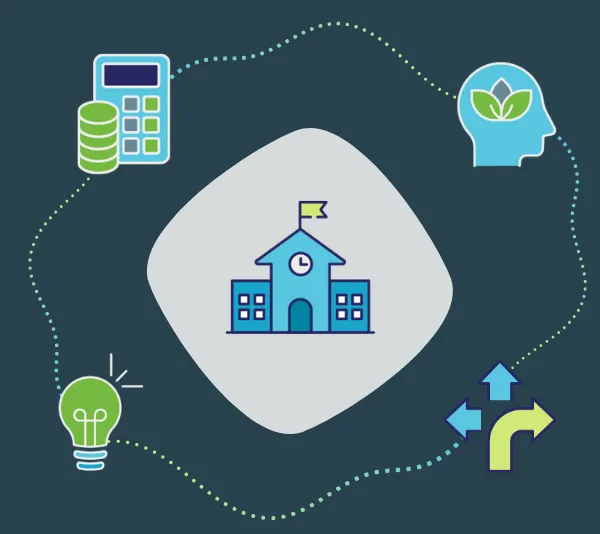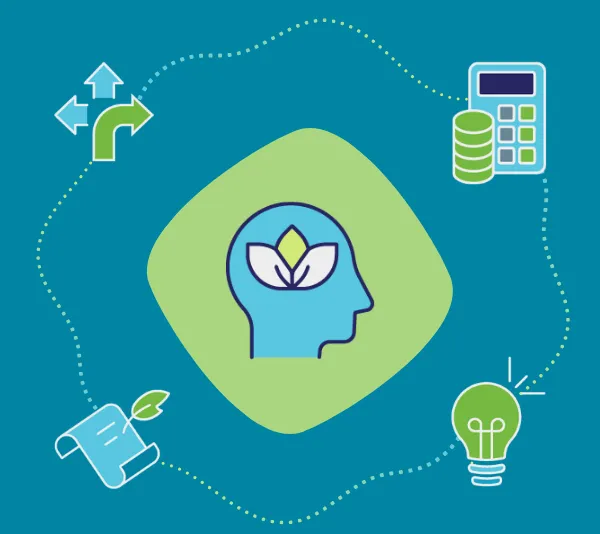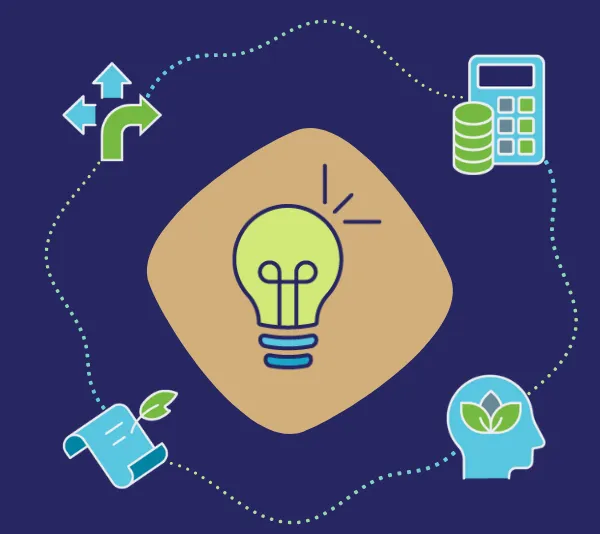Future-Proofing the Workforce: Why K-12 Investment Matters
The next generation of workers is sitting in today’s classrooms. But do high school students truly feel prepared for the challenges of the modern workforce? Beyond academic knowledge, students need critical life skills – mental resilience, financial literacy, emotional intelligence, and adaptability – to thrive. Companies looking to invest in their future workforce should consider early interventions in K-12 education as a strategic investment, ensuring that high school graduates enter the job market with strong coping skills, problem-solving abilities, and a readiness to contribute effectively to society.
Curriculum vs. Culture – Why Integration Matters
Programs focused on life skills and emotional health are only as effective as the environments they live in. In some school districts, whole-person health is embedded into the culture—supported by leadership, embraced by educators, and reflected in daily practice. In others, it remains a supplemental topic, briefly touched on and quickly forgotten.
Culture shapes how students absorb, retain, and apply what they learn. When mental well-being, character education, and financial literacy are woven into a school’s mission, values, and community, students don’t just learn—they embody those lessons.
For employers, this cultural integration matters. It means students graduate with consistently reinforced skills that translate directly into workplace effectiveness: communication, resilience, adaptability, and agency. By partnering with companies like Everfi, businesses can help shape school environments where readiness is a mindset, not just a module.
The Workforce Readiness Gap
Today’s employers report that new hires often lack soft skills—communication, teamwork, and resilience—that are crucial in any workplace. Mental health concerns are rising among young people, with stress and anxiety affecting their ability to function effectively in work environments. Character and whole-person education have been proven to yield $11 for every $1 invested, reducing crime, increasing earnings, and improving health outcomes.
Why Companies Should Invest in K-12 Education
Many students graduate without the critical life skills needed to thrive in professional environments. As industries evolve, the demand for employees who are adaptable, financially literate, and emotionally resilient has never been higher. Unfortunately, traditional education models often fall short in equipping students with these essential capabilities.
Forward-thinking companies recognize that investing in early education isn’t just philanthropy—it’s workforce development. With public education systems facing growing gaps in funding, there’s an opportunity for employers to step in and create meaningful, sustainable impact by supporting whole-person health education in the communities where they operate. As noted in this LinkedIn article, businesses are uniquely positioned to bridge this divide—and in doing so, invest in the resilience and readiness of their future workforce.
Key benefits include:
By prioritizing whole-person education, companies can help shape a future workforce that is not only job-ready but also motivated, innovative, and resilient—a win for businesses, employees, and the economy as a whole.
The Role of Programs Like Everfi
Everfi takes an equity-centered, whole-person health approach to education. Through financially supporting the development and delivery of engaging, scalable educational programs, companies can directly impact students and having their brand be associated with financial literacy, career readiness, and mental health education – ultimately positioning themselves as future employer.
If companies want a workforce that is engaged, capable, and resilient, the investment must start before they enter the job market. By supporting educational initiatives like Everfi, businesses can help shape a future where 18-year-olds don’t just enter the workforce – they thrive in it.
You can build stronger community connections with Everfi’s Health & Wellness Solutions. Discover more here.


